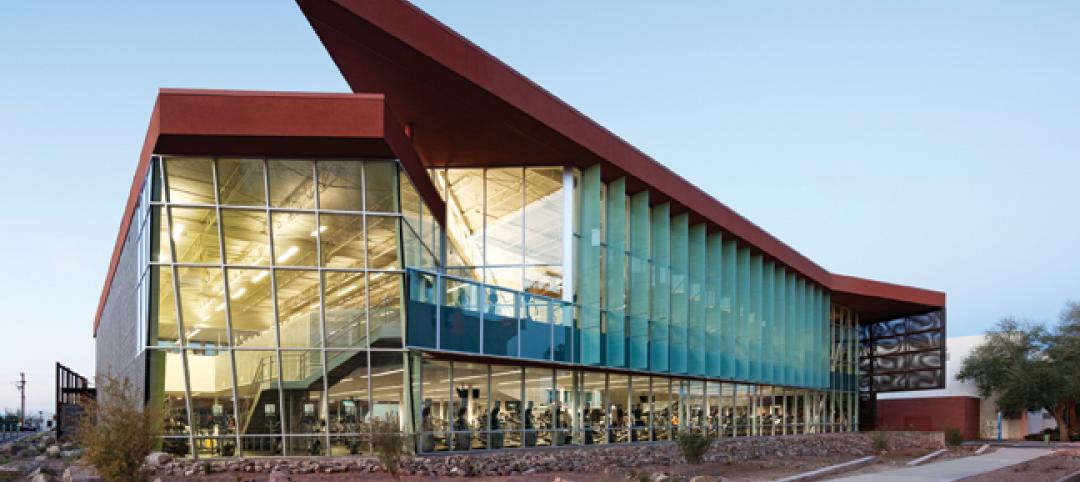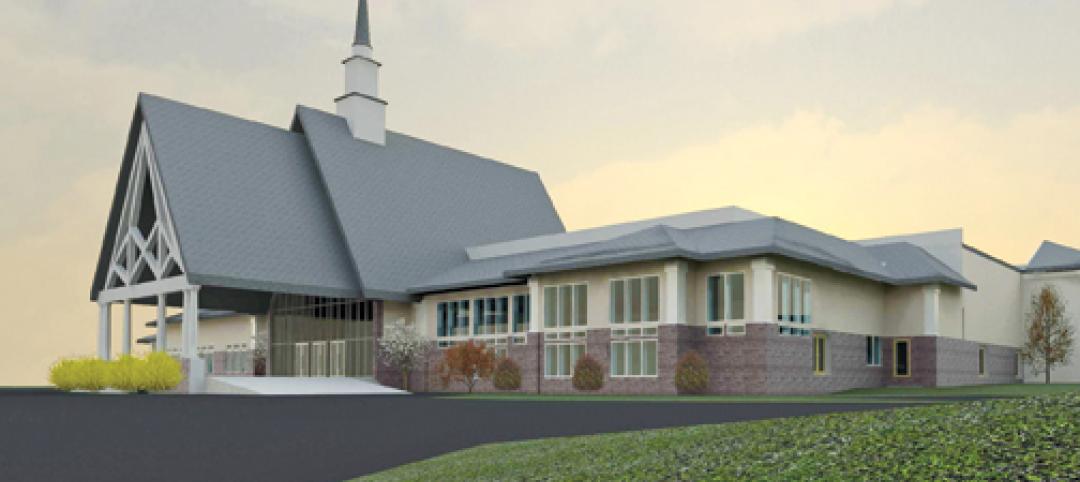Manley Spangler Smith Architects (MSSA), a Georgia-based, full-service architectural firm specializing in educational and municipal facilities, announced today a significant development aimed at increasing its capabilities, expertise, and suite of services. MSSA has merged with PBK, a nationally renowned architecture firm known for its comprehensive services and leadership in the field of educational facilities design. In 2022, PBK was ranked as the #1 Education Design Firm by Building Design+Construction widely regarded as the engineering and design industry’s premiere publication.
The combined firm is known as MSSA-PBK and has two Georgia offices located in Griffin and Sugar Hill.
Dan Boggio, Executive Chairman of PBK said, “What the MSSA Principals have accomplished to this point is extremely impressive. MSSA is a recognized leader in education and municipal design in Georgia and is extremely well regarded by its customers. Combining their long track record of exceptional local service and design excellence with PBK, results in Georgia’s most impressive full-service educational facilities design firm.”
Roy Montalbano, PBK President, further added, “The MSSA-PBK professionals are innovative and are on the leading edge of education architecture and design, ensuring that clients can accomplish their goals and perhaps most importantly, they are enriching peoples’ lives by improving the educational experience for the learners of today and those of the future.”
“This merger of PBK and MSSA is a significant opportunity, not only for our firms but more importantly, for the clients we serve,” said V. Smith, MSSA-PBK Partner. “MSSA-PBK will have the resources and capabilities to provide our clients the expertise of a large firm, delivered with the intimacy of a smaller, local firm.”
About PBK Architects
For over four decades, PBK has served as an award-winning pioneer for architectural and engineering design solutions for clients in education, healthcare, sports and corporate business. With more than 600 professionals across 17 offices, the firm embraces a unique business culture that prioritizes customer service and approaches each project without preconceived notions in order to deliver custom solutions that effectively address the unique needs of each client. The For over four decades, PBK has served as an award-winning pioneer for architectural and engineering design solutions for clients in education, healthcare, sports and corporate business. With more than 600 professionals across 17 offices, the firm embraces a unique business culture that prioritizes customer service and approaches each project without preconceived notions in order to deliver custom solutions that effectively address the unique needs of each client. The industry-leading talent of PBK’s teammates, coupled with the firm’s signature service mentality, enables the firm to provide best-in-class programmers, planners, architects, engineers and consultants that always put the client’s wishes first. For more information visit: www.pbk.com.
About MSSA
Established in 1949, Manley Spangler Smith Architects has grown into a leading firm providing services in the state of Georgia with a purposeful focus on providing each client with attentive service and exceptional expertise in educational facilities. Their passionate team members go above and beyond for each of their clients, making sure that projects are delivered on time, within budget, and far beyond expectations. For more information visit: https://mssarchitects.com/
Related Stories
| Nov 9, 2010
Designing a library? Don’t focus on books
How do you design a library when print books are no longer its core business? Turn them into massive study halls. That’s what designers did at the University of Amsterdam, where they transformed the existing 27,000-sf library into a study center—without any visible books. About 2,000 students visit the facility daily and encounter workspaces instead of stacks.
| Nov 9, 2010
Turner Construction report: Green buildings still on the agenda
Green buildings continue to be on the agenda for real estate owners, developers, and corporate owner-occupants, according to the Turner 2010 Green Building Market Barometer. Key findings: Almost 90% of respondents said it was extremely or very likely they would incorporate energy-efficiency improvements in their new construction or renovation project, and 60% expected to incorporate improvements to water efficiency, indoor environmental quality, and green materials.
| Nov 5, 2010
New Millennium’s Gary Heasley on BIM, LEED, and the nonresidential market
Gary Heasley, president of New Millennium Building Systems, Fort Wayne, Ind., and EVP of its parent company, Steel Dynamics, Inc., tells BD+C’s Robert Cassidy about the Steel Joist Manufacturer’s westward expansion, its push to create BIM tools for its products, LEED, and the outlook for the nonresidential construction market.
| Nov 3, 2010
First of three green labs opens at Iowa State University
Designed by ZGF Architects, in association with OPN Architects, the Biorenewable Research Laboratory on the Ames campus of Iowa State University is the first of three projects completed as part of the school’s Biorenewables Complex. The 71,800-sf LEED Gold project is one of three wings that will make up the 210,000-sf complex.
| Nov 3, 2010
Park’s green education center a lesson in sustainability
The new Cantigny Outdoor Education Center, located within the 500-acre Cantigny Park in Wheaton, Ill., earned LEED Silver. Designed by DLA Architects, the 3,100-sf multipurpose center will serve patrons of the park’s golf courses, museums, and display garden, one of the largest such gardens in the Midwest.
| Nov 3, 2010
Public works complex gets eco-friendly addition
The renovation and expansion of the public works operations facility in Wilmette, Ill., including a 5,000-sf addition that houses administrative and engineering offices, locker rooms, and a lunch room/meeting room, is seeking LEED Gold certification.
| Nov 3, 2010
Sailing center sets course for energy efficiency, sustainability
The Milwaukee (Wis.) Community Sailing Center’s new facility on Lake Michigan counts a geothermal heating and cooling system among its sustainable features. The facility was designed for the nonprofit instructional sailing organization with energy efficiency and low operating costs in mind.
| Nov 3, 2010
Seattle University’s expanded library trying for LEED Gold
Pfeiffer Partners Architects, in collaboration with Mithun Architects, programmed, planned, and designed the $55 million renovation and expansion of Lemieux Library and McGoldrick Learning Commons at Seattle University. The LEED-Gold-designed facility’s green features include daylighting, sustainable and recycled materials, and a rain garden.
| Nov 3, 2010
Recreation center targets student health, earns LEED Platinum
Not only is the student recreation center at the University of Arizona, Tucson, the hub of student life but its new 54,000-sf addition is also super-green, having recently attained LEED Platinum certification.
| Nov 3, 2010
New church in Connecticut will serve a growing congregation
Tocci Building Companies will start digging next June for the Black Rock Congregational Church in Fairfield, Conn. Designed by Wiles Architects, the 103,000-sf multiuse facility will feature a 900-person worship center with tiered stadium seating, a children’s worship center, a chapel, an auditorium, a gymnasium, educational space, administrative offices, commercial kitchen, and a welcome center with library and lounge.
















